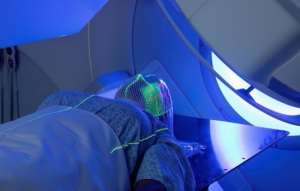
Radiation therapy does not just treat the body but puts it on a rigorous test. While it works towards destroying the cancer cells, it also puts stress on the healthy tissues. Fatigue, nausea, loss of appetite, and changes in the taste often follows. In the middle of the treatment, food consumption takes a backseat. Even the simplest meals can feel difficult to digest. The goal is not to eat perfectly but to nourish the body in ways that feel manageable and gentle.
Post radiation therapy, food becomes a source of strength, a way to support healing, and sometimes one of the few things within the patient’s control.
Start Small, Eat Often
Radiation can leave the body feeling drained, and hunger cues may fade. But skipping meals can make fatigue worse. When larger meals feel overwhelming, smaller portions should be consumed throughout the day. Simple foods like dal khichdi, curd rice, mashed vegetables, or fruit smoothies offer comfort without demanding too much from the digestive system. If solid food feels too heavy, light broths or porridges can step in.
Let Food Support the Healing
Protein is essential during radiation. It helps repair damaged tissues and supports recovery. Soft-cooked eggs, curd, dals, paneer, fish, or chicken (if tolerated) are good choices. If chewing becomes a struggle, switch to mashed or pureed versions. A spoonful of ghee or a drizzle of oil can boost calories without increasing the quantity, especially helpful for those with reduced appetite.
Hydration Matters—Even When You Do Not Feel Thirsty
Radiation often causes dryness in the mouth, sore throat, or digestive changes like Diarrhoea—all of which can quietly lead to dehydration. Keep sipping plain water, coconut water, buttermilk, lemon juice with a pinch of salt, or herbal teas to keep yourself hydrated. If the taste changes, make water unappealing, warm thin soups are the gentle alternatives.
Work Around Side Effects, Not Against Them
Not all days feel the same. On days with nausea, dry foods like puffed rice, toast, or plain crackers may be better tolerated than oily or spicy meals. If the mouth feels sore or sensitive, bland, soft-textured foods—like overcooked rice, mashed vegetables, or soaked poha—are less irritating. Avoid consuming very hot or spicy foods that can worsen the discomfort.
Losing Weight During Radiation
Losing weight without trying is common during radiation—and it can happen quickly. If clothes start to feel loose or if meals become a struggle, it’s important to act early. Nutrient-dense shakes or meal replacements may help in some cases, but these should only be added after speaking with a doctor or clinical dietitian.
Stay Flexible—Not Every Day Will Look the Same
Cravings and tolerances can change on daily basis. A food that feels good one day may not sit well the next day. Instead of sticking to a rigid food plan, allow space for adjustments in your regular diet. The thing that matters is staying nourished consistently and not forcing for perfection in your dietary habits.
Avoid Online Diet Fads During Treatment
One might get carried away in the pool of advice, from juice cleanses to extreme diets claiming to “fight cancer.” But these approaches may not work for all, especially during treatment. Following extreme diets or making major changes without medical guidance can sometimes do more harm than good, especially when the body is already under stress. It is always safer to stick with balanced, comforting meals unless advised otherwise by the medical team.
Nourishment Without Pressure
Radiation therapy is hard enough. Food should ease that path and not complicate it further. Eating well may not erase every symptom, but it can make the days feel a little steadier and the body a bit stronger. Few small changes, such as an extra spoon of rice, a glass of buttermilk, a handful of soaked nuts can quietly support the body through treatment.
If there is any doubt on the safety or the suitability of the diet, a clinical nutritionist can offer clarity. With the right guidance, food becomes less of a worry and more of a quiet companion in healing.
By Dr. Vijay Aditya Yadaraju, Radiation Oncology Consultant, HCG Cancer Hospital, Visakhapatnam


